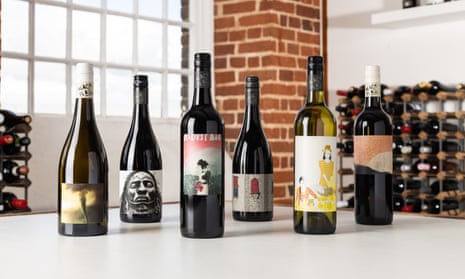Virgin Wines is to float on the London Stock Exchange next month with a valuation of about £100m as the Covid-19 pandemic increases demand for its home-delivered wines.
The company, bought out of Sir Richard Branson’s Virgin group in 2005, mostly sells wine through its WineBank and Wine Plan subscription schemes, but also on a pay-as-you-go basis. It has 169,000 active customers, of which 147,000 are members of its subscription schemes.
The company has benefited as people have been spending far more time at home during the pandemic, and pubs and bars have been shut during lockdowns. It said customers were spending more to buy high quality wine. The off-trade market for wine specialists was estimated to be worth £2.4bn last year.
Jay Wright, the Virgin Wines chief executive, said: “We have enjoyed strong, consistent growth recently resulting in the group delivering more than 1m cases of wine to consumers during 2020. Underpinned by the strength of our customer proposition as well as the benefit of many positive consumer trends, we have a clear strategy to continue this growth over the coming years.”
The company plans to list on London’s junior Aim market on 2 March and is targeting a valuation of £100m. It is following in the footsteps of Deliveroo, Moonpig and the Hut Group, which have also opted for stock market debuts and benefited from big pandemic-related shifts in consumer spending. Moonpig raised £20m in new money to fund further expansion when the online greetings card and gift retailer listed on the stock market in early February, and it is now valued at £1.56bn.
City investors have been eager to snap up shares in internet businesses that have thrived during the pandemic. The Hut Group, which runs websites for retailers including Asda and Tesco and provides technology to Nestlé, Unilever and Danone, floated in September at £4.5bn and its shares jumped by a quarter on the first day, in the biggest London stock market debut since 2013.
Deliveroo, the London-based takeaway delivery service, is drawing up plans for a stock market flotation that could reportedly value it at up to £7.5bn next month.
Virgin Wines is one of the UK’s biggest home delivery wine businesses along with its former owner Direct Wines’ Laithwaite’s Wine, a family-owned business, and Naked Wines.
Nick Bubb, an independent retail analyst, said: “The IPO [initial public offering] is obviously opportunistic and I don’t think it’s as good a business as Naked [Wines], but anything online walks out the door these days.”
As demand for online wine orders and home delivery has surged, Uber acquired the alcohol delivery service Drizly for $1.1bn (£790m) earlier this month. The deal will allow the ride-sharing company to offer beer, wine and spirits in most US states in addition to the groceries and prescription delivery service it has launched in some areas.
Vivino, a San Francisco-based wine app that was founded in Denmark in 2010, recently raised $155m in an investor funding round. It said at the time: “Alcohol e-commerce sales worldwide have grown immensely, and it is estimated that by 2024, they will exceed $40bn.”
